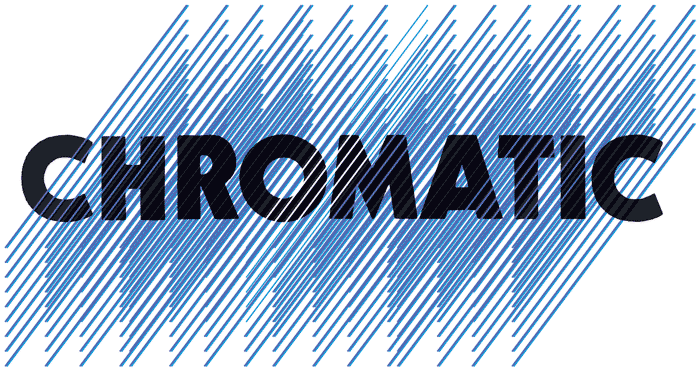HOME IS WHERE
the whaler
Wax Bodega
Home Is Where make anxiety-riddled but cathartic rock songs about the apocalypse. the whaler—the Palm Coast, Florida quartet’s ambitious and exhilarating sophomore full-length—is a concept record about getting used to things getting worse. Across 10 interconnected but self-contained songs, the album captures the desensitization and disorientation of tragedy becoming mundane. the whaler, produced by Jack Shirley (Joyce Manor, Deafheaven) at Atomic Garden in Oakland, CA, marks an unmistakable new chapter for frontwoman Bea MacDonald’s songwriting, subverting the expectations left by her band’s 2021 debut LP I Became Birds for something equally resonant, but darker and more expansive. While the whaler paints a bleak picture of a world in an endless state of collapse–of ruined utopias and desperate people faking normalcy–there’s a humanity-affirming undercurrent throughout that screams to break free.
I Became Birds received rave reviews from Pitchfork, Stereogum, and the Washington Post, among others, and was the intensely personal product of nine years of MacDonald’s songwriting. She wrote the whaler, however, over a blistering year-and-a-half period that followed I Became Birds’ release. “The idea for the record came to me in the spring of 2021 when I realized I wasn’t doing too hot mentally, and had a nervous breakdown,” she explains. “A lot of it is a very negative record, which was scary to write because I was being honest with myself and allowing a lot of fucked up thoughts to be in the songs. I was more vulnerable than I was used to being in art.” Moments in MacDonald’s own life had caused her to question reality, and reading Jean Baudrillard’s Simulacra and Simulation helped her name these emotions. “In that book, he wrote ‘We live in a world where there is more and more information and less and less meaning,’ and that idea really went into a lot of the songs on the record,” says MacDonald.
The album’s centerpiece, “everyday feels like 9/11,” serves not only as the emotional nucleus of the whaler, but also as its setting: 9/11/2001. “I still feel like we're living in the fallout of that day,” she says. “It’s a significant symbol for the collapse of everything. It was really successful in destroying America as an idea. Before, you could argue that there was an American Dream. But now, look at what that utopia has become.” The song’s subdued sister, “9/12,” is a reminder of the bleak reality that on that date, “everyone went back to work.” As a lyricist, MacDonald wrote linearly, and filled in any narrative gaps with every revision as she sequenced the album. “With Birds being so personal and inward, for this one, I wanted it to be less about me and more about how a person navigates this postmodern, late capitalist hell world that we've built around us,” she says. “There’s still something personal in that though, even though it’s much more external.” Her frustration is palpable on “lily pad pupils,” a slow burning track about approximating normality after the end of the world. With a twangy and unpredictable arrangement courtesy of her songwriting partner, guitarist Tilley Komorny, the song morphs into a punk rager as she screams, “earn your urn.”
Home Is Where decamped to Oakland in 2022 to record the whaler with Shirley, marking the first time they’ve ever recorded outside their home state. Despite the emotional circumstances behind MacDonald’s fraught lyrics, the band’s experience in the studio couldn’t have been more gratifying and rewarding. “Jack is my favorite contemporary producer and he humored us on all of our out-there ideas,” says MacDonald, referencing Shirley’s work with Deafheaven and Jeff Rosenstock. “We felt this huge wave of inspiration in the studio as all of the ideas we just joked about were empowered thanks to Jack.” For example, lead single “yes! yes! a thousand times yes!,” which feels like Sheryl Crow’s “Soak Up the Sun” by-way-of Neutral Milk Hotel’s On Avery Island, was transformed by a simple suggestion from Shirley to have bassist Connor O’Brien melodically anchor the song as drummer Josiah Gardella attempted a disco drum beat. “This song has the most pop elements, while also being one that strays away from a standard pop song structure,” explains Komorny. Elsewhere, Shirley’s openness to any outlandish ideas resulted in the irreplaceable pedal steel found in the pop-minded ode to American decay, “daytona 500.”
Opener “skin meadow,” the most maximalist and adventurous Home Is Where song to date, is perhaps the best document of the band firing on all cylinders in the studio. Evoking the grandiose vision of The Smile Sessions, the track explodes with gang vocals, trumpet blistering guitars, and singing saw as MacDonald yells, “forgive me for giving a shit.” “This is the most fun I've ever had in a band setting,” says Komorny. “We write the best music that we can when we're all together in a room. Every song is just really exciting to play and ‘skin meadow’ might have been one where you can really hear us having a great time.”
Though the whaler is an album where things fall apart, time folds in on itself, and whales offer themselves up to the harpoons, it doesn’t end on an overly bleak moment. The harmonica-laden closer “floral organs” finds a glimmer of hope and a smile even as the buzzards come. “There are still a lot of very tender and sweet moments here despite everything. I didn't want to have just a bunch of finger-pointing songs, where it’s just, ‘Isn't everything so fucked up? Oh my God: this sucks!’" says MacDonald. “That gets under my skin after a while no matter how good it is.” The track comes to a close with a tape loop that rewinds back to the opening moments of the record, evoking a sense of the apocalypse happening over and over again, but it’s just another day if you let it be. Home Is Where have accomplished a timeless album that’s both lucid and human: a testament to centering yourself and those around you when meaning is lost, and the world burns.




